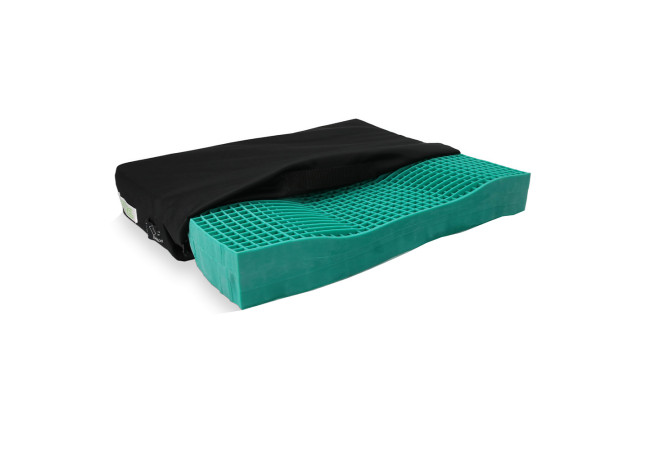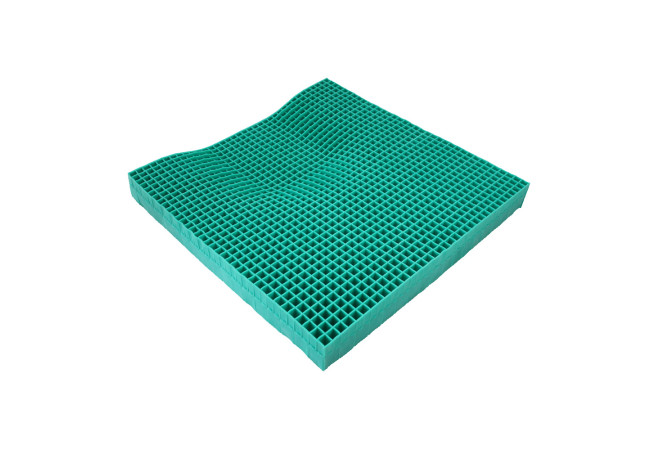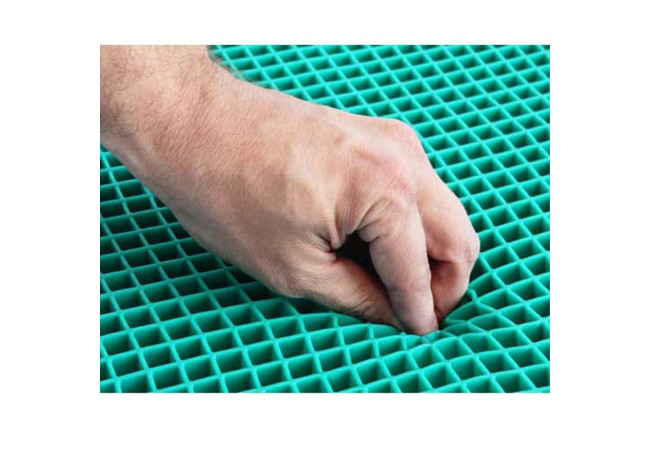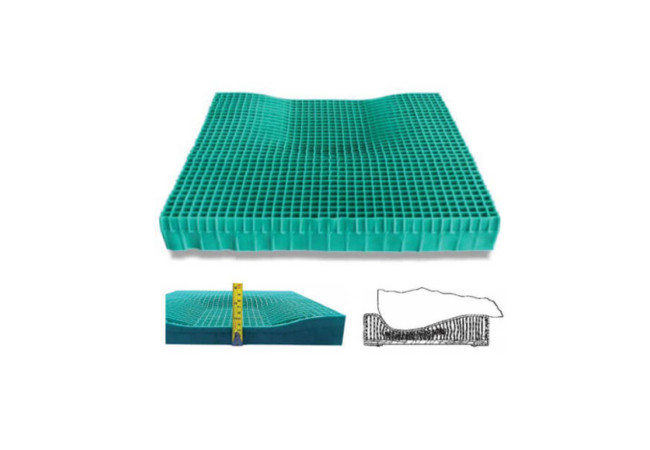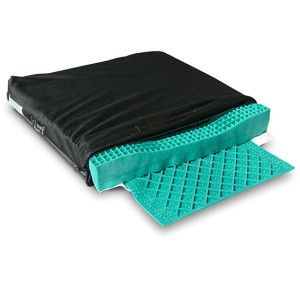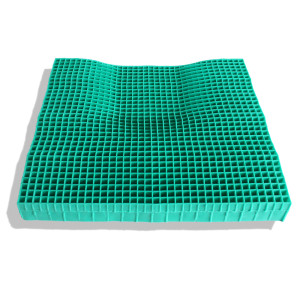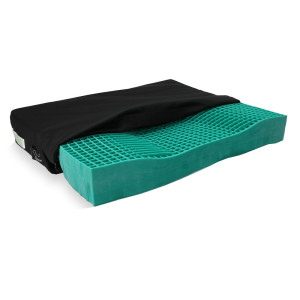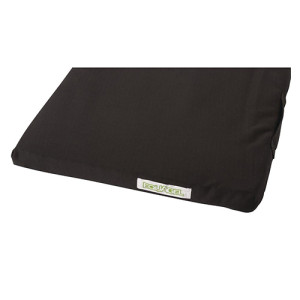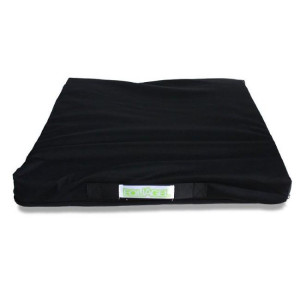THE EQUAGEL PROTECTOR
The Protector is 6.45cm (2.5 inches) of patented EquaGel™ with a 2.54cm (1'') trochanter bucket sculpted in for stability and comfort followed by a 1.27cm (0.5") stability foam base.
Key Features
- 100% EquaGel™
- 6.35cm (2.5”) tall EquaGel™ in two stages
- The top layer is a thin wall gel and a tight grid for comfort
- The bottom layer is a thicker wall gel and a wide grid for deep posture support
- The pelvic area of the cushion is contoured to more evenly distribute a user’s weight than flat cushions while retaining 4.45cm (1.75”) of buckling gel under the pressure points
- Fluid resistant, Vapor permeable, flame resistant cover
About EquaGel
EquaGel™ is a dry-polymer gel, almost rubbery to the touch. It has unbelievable tensile and compression strength and incredible durability, but these are not what make EquaGel™ special.
- Its most amazing feature is the column buckling. Simply put, column buckling refers to the way EquaGel™ behaves under weight. Each wall of gel is capable of supporting only a light load. When that threshold is exceeded, the wall of gel buckles into the hollow area between walls and passes the weight to the surrounding walls for support.
- This “buckling and weight-passing” happens instantly and repeatedly until the maximum surface area of pressing weight is evenly supported by largely equalised pressure (hence our name, EquaPressure).
- The peak pressure points of the ischial tuberosities and the coccyx/sacrum buckle into the EquaGel™, feeling almost as if they are free floating within the cushion while the thighs and buttock of the user are supported.
- Each cushion also utilises a two-stage buckling approach. The top of the cushion has a small grid of gel that is extra sensitive to pressure needs. It is the comfort layer. This top layer buckles easily and allows the parts of a user that need support to sink into the lower layer (the support layer) while holding the rest of the user up in good posture.
- Some of our cushions also feature a pelvic contour. This gentle contouring mimics the natural sitting shape and further distributes pressure away from sensitive areas.


